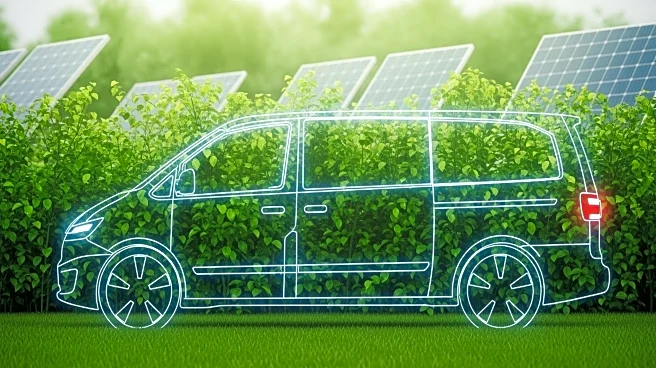What's Happening?
Farizon Auto has announced the sustainable production methods for its SV large van at the Xiangtan manufacturing facility in China's Hunan province. The facility is designed as a zero-carbon factory, operating
on 100% renewable energy sourced primarily from solar and wind. The van incorporates 10% recycled materials, with 85% of its components being recyclable at the end of its life. The plant uses a closed-loop water recycling system, reducing freshwater dependency by 75%, and AI-optimized logistics networks to cut ancillary emissions by 30%. Over 95% of production waste is recycled, and the facility enforces Green Partner Certification for suppliers, ensuring ISO 14001 compliance. Community initiatives include a battery regeneration hub and a training center for circular economy manufacturing techniques.
Why It's Important?
The sustainable production of the SV electric van by Farizon Auto represents a significant step towards reducing the environmental impact of vehicle manufacturing. By utilizing renewable energy and recycled materials, the company is setting a precedent for eco-friendly practices in the automotive industry. This approach not only aligns with global sustainability goals but also addresses consumer demand for environmentally responsible products. The initiative could influence other manufacturers to adopt similar practices, potentially leading to industry-wide changes that prioritize sustainability. Additionally, the focus on local sourcing and waste reduction supports economic and environmental benefits, contributing to a more sustainable supply chain.
What's Next?
Farizon Auto's commitment to sustainability may lead to further innovations in eco-friendly vehicle production. The company's practices could inspire regulatory bodies to implement stricter environmental standards across the automotive industry. As the demand for electric vehicles grows, Farizon's approach might attract partnerships with other companies seeking to enhance their sustainability credentials. The success of these initiatives could also encourage investment in renewable energy and recycling technologies, further advancing the transition to a circular economy.









